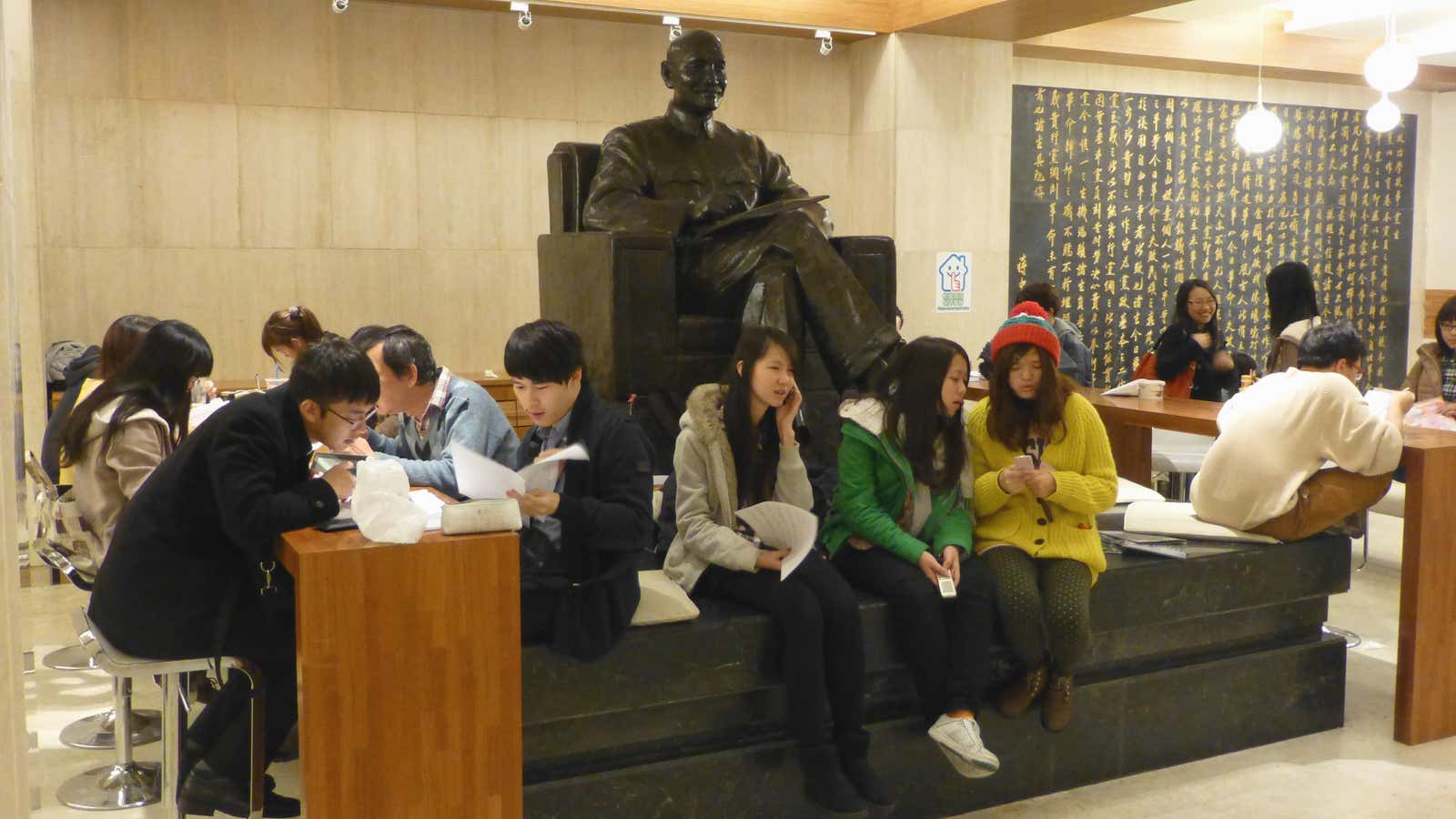Taipei, Taiwan
More than half of Taiwan’s universities may have engaged in self-censorship in order to attract Chinese students, according to a government investigation in Taiwan.
According to the Ministry of Education, 80 of Taiwan’s 157 universities have signed agreements with Chinese universities that are primarily sources of short-term study-abroad candidates, vowing not to contradict official Chinese views on Taiwan’s status.
Taiwan’s universities are facing falling new student enrollment, leaving them increasingly vulnerable to Beijing’s demands if they want the growing numbers of Chinese students to keep coming. The incident is also the latest example of China using its growing army of students abroad to advance its political agenda. Almost 550,000 Chinese students study outside of China, according to the latest government figures.
Institutions named by the ministry include some of Taiwan’s most prestigious, including National Taiwan University and National Chengchi University. Education minister Pan Wen-chung said on Monday that the ministry will draft new guidelines for future cross-strait university agreements.
China’s Communist Party regards Taiwan as unfinished business from the Chinese civil war, which ended in 1949 with the Nationalists fleeing to Taiwan. Taiwan, a self-ruled democracy caught in diplomatic limbo, has only recently begun to take large numbers of Chinese students.
Legislator Hsu Yung-ming has been a vocal critic of the universities’ policy to reach agreements with Chinese institutions. Hsu earned his doctoral degree from the University of Michigan before teaching political science at Taiwan universities, including classes on Taiwan’s democratization, which were attended by Chinese students. He said he is in favor of Chinese students studying in Taiwan, provided it doesn’t influence how classes are taught—but that in this case it is “quite obvious” that China is trying to curtail freedom of discussion in Taiwan schools.
“The content of the requests that [Chinese universities] made was very consistent,” he said. “They were requesting in a unified manner that Taiwanese universities commit themselves to a position” with regard to Taiwan’s political status.
The education ministry said it will continue its probe to determine whether any institutions had violated regulations governing cross-strait relations. Ministry staff declined an interview request, citing the ongoing investigation.
Many of the schools named in the preliminary report have said they merely signed agreements or attachments to placate Chinese counterparts and had not diminished Taiwan’s sovereignty.
Taiwan’s universities have been suffering from a one-two punch of lower new student enrollment and a glut of universities. New student enrollment was down 7.4% last year compared to the previous year, and that trend is expected to continue into the future, primarily due to Taiwan’s low birth rate.
To survive in the current environment, some universities are merging, while others are forming alliances to share students and resources. The education ministry has even suggested that some universities could become nursing homes to serve Taiwan’s rapidly graying population.
As such, Chinese students have become a growing source of revenue for schools. In the nine years between 2007 and 2015, non-degree-seeking Chinese students in Taiwan increased by more than 40 times from 823 to 34,114, according to government figures. Chinese nationals were first allowed to enter degree programs in 2011—between that year and 2015, student numbers increased by more than eight times, from 928 to 7,813.
Concerns about China using its students as political tools have flared up elsewhere in the world. In 2014, the US House Committee on Foreign Affairs held a hearing to discuss how China’s influence over American universities might be compromising academic freedom. Much of the hearing focused on the Confucius Institutes opened by the Chinese government in the US.
That same year, Australian officials admitted they had to improve their counter-intelligence operations at Sydney and Melbourne universities to counter Beijing’s use of Chinese students to monitor students and lecturers.
More recently, Chinese students have been vehemently protesting against the University of California San Diego’s (UCSD) announcement last month that the Dalai Lama would deliver the commencement speech at this year’s graduation ceremony. Opposition against the Dalai Lama’s visit—on the grounds that the Tibetan spiritual leader is seen by some Chinese as a terrorist—was spearheaded by UCSD’s Chinese Students and Scholars Association, which had been in communication with the Chinese consulate over the issue.
